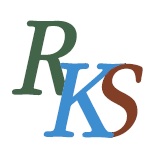 ISSN : 1229-0076
ISSN : 1229-0076
Zhu Xi’s Ge-wu-zhi-zhi Theory and Its Implications in Reconstructing the Postmodern Curriculum
이재준 (인하대학교)
Abstract
- keywords
- Curriculum paradigm, Ge-wu-zhi-zhi theory, self-cultivation, thepostmodern, and ultimate reality
참고문헌
?HHw�?HH?HH?HH,
?HHw?HH?HH?HH{?HHx ,
?HHw?HH?HH?HHf?HHx ,
?HHw?HH?HH?HHq?HH?HH?HH?HH?HHx ,
?HHw?HH?HZ?HH?HHW?HHx ,
?HHw?HH?HH?HH?HH?HH?HH?HHS?HHx ,
Canada?HHfs Universities onthe Road to Ruin. Toronto,
G. 1976. ?HHgPhysical Science and Moral Confusion.?HHh In Reflections onValues Education, Wilfrid Laurier Univ.Press.
D. R. et al. 1993. Founders of Constructive Postmodern Philosophy.New York State University of New York Press.,
J. 1987. The History of Western Philosophy. Kang Seongui trans.Daegu, Yimun Publishing Co.
T. S. 1970. The Structure of Scientific Revolutions. Chicago TheUniversity of Chicago Press.,
Oh Mahn-Seug. 1986. ?HHgMeaning of Text and Interpretation Development ofModern Hermeneutics and Its Relevance to Pedagogical Communication ofMeaning.?HHh Curriculum Praxis TheUniversity of Alberta.,
(1995) Understanding Curriculum: An Introduction to the Study of Historical and Contemporary Curriculum Discourses., Peter Lang Publishing Inc.
(1995) Curriculum Development in the Postmodern Era. New York ?HH, Garland Publishing, Inc.
- 다운로드 수
- 조회수
- 0KCI 피인용수
- 0WOS 피인용수

